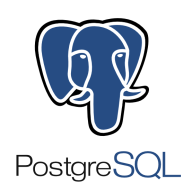


Find out what your peers are saying about Firebird, Oracle, PostgreSQL and others in Open Source Databases.



Firebird SQL is an open-source, cross-platform relational database management system that offers an enterprise-level database solution. The solution is designed to be highly secure, efficient, and compatible with various platforms and programming languages. Firebird can operate in both embedded and server modes.
Firebird is an open-source project with an active community of developers and users. It is released under the Initial Developer's Public License (IDPL) and the InterBase Public License, allowing for free use, modification, and distribution.
The Firebird solution requires minimal configuration and its architecture allows it to efficiently handle databases ranging from a few KB to multiple terabytes. It is available for various operating systems, including Windows, Linux, macOS, and several Unix-like platforms.
What are the key features of Firebird SQL?
As part of being a commonly used open-sourced solution, Firebird boasts a vibrant community of developers and users. The community provides extensive documentation, third-party tools, and active forums for support. Businesses can also opt for professional support services offered by third-party vendors for added assurance.
To summarize, Firebird SQL is a robust, scalable, and cost-effective database solution suitable for a wide range of applications and business sizes. Its comprehensive SQL support, security features, and cross-platform compatibility, combined with the active community support, make it a compelling choice for businesses looking to leverage the power of open-source software without compromising on performance or security.
MySQL is a cost-efficient and scalable relational database management system widely used in web, mobile applications, and academic projects.
MySQL is utilized for backend operations, data analysis, reporting, financial transactions, and ERP databases. It supports deployment on local servers, Cloud, and Kubernetes. Its free, open-source nature along with strong community support make it popular among companies. MySQL's compatibility with multiple platforms and programming languages enhances its appeal. While it remains stable and easy to use, areas such as replication, clustering, and backup require improvement to better serve enterprise applications. Enhanced security, error messages, and monitoring tools are also desired for a better user experience.
What are the most important features of MySQL?In multiple industries, MySQL supports internal applications, billing systems, academic teaching purposes, and ERP databases. Companies leverage MySQL for Cloud and local deployments, ensuring effective data manipulation and backend operations in diverse projects. Its role in financial transactions and reporting further emphasizes its versatility.
PostgreSQL is a versatile and reliable database management system commonly used for web development, data analysis, and building scalable databases.
It offers advanced features like indexing, replication, and transaction management. Users appreciate its flexibility, performance, and ability to handle large amounts of data efficiently. Its robustness, scalability, and support for complex queries make it highly valuable.
Additionally, PostgreSQL's extensibility, flexibility, community support, and frequent updates contribute to its ongoing improvement and stability.